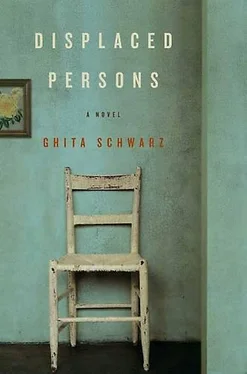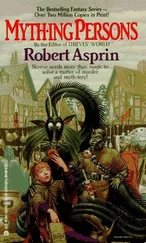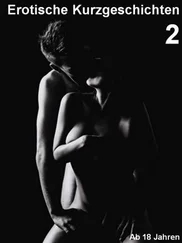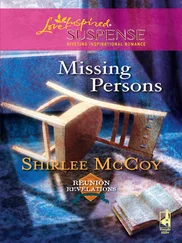Fela did not love to cook. She loved to bake. Pavel had a nostalgia for stuffed derma, but she could perform only a poor imitation of her mother’s recipes, and besides, too much meat limited her baking to cakes without dairy in order to keep the home kosher. She would bring the dairyless cookies with her for holiday dinners at the home of Pavel’s sister Hinda, and Hinda would scold her sons for eating too many. Fela and Hinda did not feel a warmth toward each other, even from the first, when Hinda was still a bitter girl without a mother or a sister or even a friend to guide her through womanhood and marriage. Hinda had married before Fela and Pavel, and no doubt Hinda had disapproved of the morals in the house near the DP camp, Fela and Pavel sharing a bed before signing a marriage contract. But that was not all of it. Hinda took herself away from everyone but her husband-to that neighborhood in Long Island, not a single acquaintance from Europe. Hinda did not like reminders, not even of the time in Germany after the war.
Fela was different. She had drawn an internal line and kept herself calmly on the side of the new life. Her mouth and face and hands no longer felt strange to her. For all Hinda’s clucking at the cakes, Fela still looked all right, although she felt she could lose two or three kilos. They had come upon her in the last year, without her noticing until summer, when she pulled the slim beige strap of her open-toed mules over her pedicured feet and felt herself teetering at the knees, the extra weight pushing down on her ankles.
As for Pavel, he noticed his own appearance more than hers. Every morning since they came to the United States she would watch him from their bed getting dressed. It fascinated her, the unwrapping of the phylacteries from his arms and forehead, his daily choice of shirt, his struggle to put on his specially made shoes, one stacked higher than the other to balance the limp. She would lie curled, breathing steadily, feigning sleep as he knotted his necktie in the mirror, pulled his jacket onto his narrow chest, and then stopped to stare at himself. Sometimes he would stare thirty seconds, sometimes almost five minutes. She knew what he saw. Scarred body, dented face, worn skin hanging below his thinning black hair. But his clothing was fresh, the shirt pressed but soft, the tie subtly patterned to complement the suit. He drove the children crazy on the way out the door, smacking their winter coats with a lint brush, refusing to acknowledge that once outside for five minutes they would accumulate far more debris than he could scrape off in the few moments before the rush out of the apartment to school.
THERE WAS A COMMOTION at the pool. Fela could see a small group of adults in a half-circle and two boys chasing each other, trying to steal a glimpse of the scandal within. She walked faster, her paper bag of oranges and apples tapping her thighs in an assuring rhythm. Nothing has happened, nothing has happened, she thought to herself, the words coming into her brain slowly, then accelerating. Nothing has happened, nothing has happened, God willing, nothing has happened.
“Mrs. Mandl! Here she is!”
The phrases in Fela’s head stopped even as her legs began to run, the inner soles of her mules slapping against the bottoms of her feet, the edges of her toes scraping against the gravel, then the concrete, then the tiles surrounding the pool. She pushed at the women in their half-circle, at the small damp girls crowded by the lounge chairs, she pushed, she didn’t know what or where she pushed, but she heard again, this time softer, the American woman’s voice that had called her name:
“Now don’t worry, Mrs. Mandl, really, don’t worry. She’s okay.”
Blood trailed down Helen’s temples.
“ Oy, Gott!” Fela whispered, her breath cold against her teeth. “ Oy, Gott!”
Her hair-her child’s hair! was dark and matted, thick with blood, more blood.
“ Mein kind!” she cried. “Oy, Gott!”
“Mrs. Mandl!” Another voice, from the direction of Helen. Fela saw suddenly, even as she reached out to grab her daughter’s hand, to touch her daughter’s pink and swollen skin, that Helen sat in the lap of a large woman whose round face bubbled out from behind large brown sunglasses. Fela looked at the woman with confusion. A man stood over the two of them, wiping the back of Helen’s head with a bright white bandage quickly soaking with red, a wave of blood spreading as if through a snowdrift on a narrow cobbled street, but no, there was no snow, there was no snow, Fela turned her head to look past the plump legs of the women to the pool, it was summer, it was New York, there was no snow, but the pool was suddenly filled with dark red water, blood, no, it was blue, it was a pool, the municipal pool of Jackson Heights where she took her children each Saturday in summer, it was summer, and she was looking at the face of her five-year-old daughter, who had stopped her crying and was talking to her in English.
“Don’t worry, Ma, don’t worry.”
“Heads always bleed a lot! Nothing bleeds like a head!” It was the man speaking, his hand lifting and twisting Helen’s hair, rubbing his dark bandage on the child’s scalp. “She won’t even need stitches!”
“Stitches!” cried Fela.
“Mrs. Mandl!” repeated the woman, holding Helen by the waist. “Don’t get hysterical. It will only upset her.”
But what is it? What happened? My God, dear God, what happened?
The man smiled at her. “No speak English?” he asked. “Doctor.” He pointed to his bag, then clapped a hand to his chest. “Doctor.”
What has happened? What has happened?
“Does anyone around here speak Jewish?” called the large woman in the sunglasses. “Even a few words?”
“There’s no one here today,” said someone in the crowd. “It’s Saturday.”
She looked up for the body attached to the voice, then saw her son was before her, hair damp, shorts dripping, face wet with pool water and tears. She saw her son, and his father’s crumpled face in his, and her chest grew hot, her voice was wailing out, she could feel the wail coming out of her, though when it came out she heard it only in a whisper, What did you do? What did you do?
“She just wants to know what happened.” Larry’s thin voice. “She understands.”
A child started talking, a woman cut him off, then another woman interrupted. Diving, the children had been diving, running and diving, the somersaults the little ones liked to compete over, and Helen had made an acrobatic leap and knocked into the wall of the pool, emerging from the water with a line of blood streaming after her. Larry said not a word, and when Fela found it in herself to look at his face, to accuse him, he was looking down at his feet, at Helen’s feet, at the cement walk on which the crowd stood.
“Kids get hurt,” said the woman holding Helen. “It happens. Now, sit in that chair. Go, sit.”
The doctor nodded. “Let Dr. Velasco play hairdresser with your daughter another minute.”
Helen giggled.
Fela moved over to a lounge chair, Larry following. The women and children had dispersed, only one woman standing by, a soft smile on her face. Fela smiled back.
“It’s okay, everything okay,” Fela said. Perhaps the neighbor would turn away. But she stayed. Fela feigned a look of concentration as she watched the doctor’s hands, the slim bottle of ointment he twisted open and poured on yet another bandage, then moved her eyes down to his wide feet in brown sandals, to Helen’s own feet and legs, her little waist wrapped in damp nylon, the pink and yellow flowers of her bathing suit.
They had no idea, these children. No idea what it took to bring them into the world. If they knew, they could not risk everything in this way, diving against a mother’s wishes, running, screaming, hitting, scratching-almost, God forbid, choking each other!-they knew nothing of what it took. If they knew even a half, even a quarter, even a tenth, they would not dare.
Читать дальше











